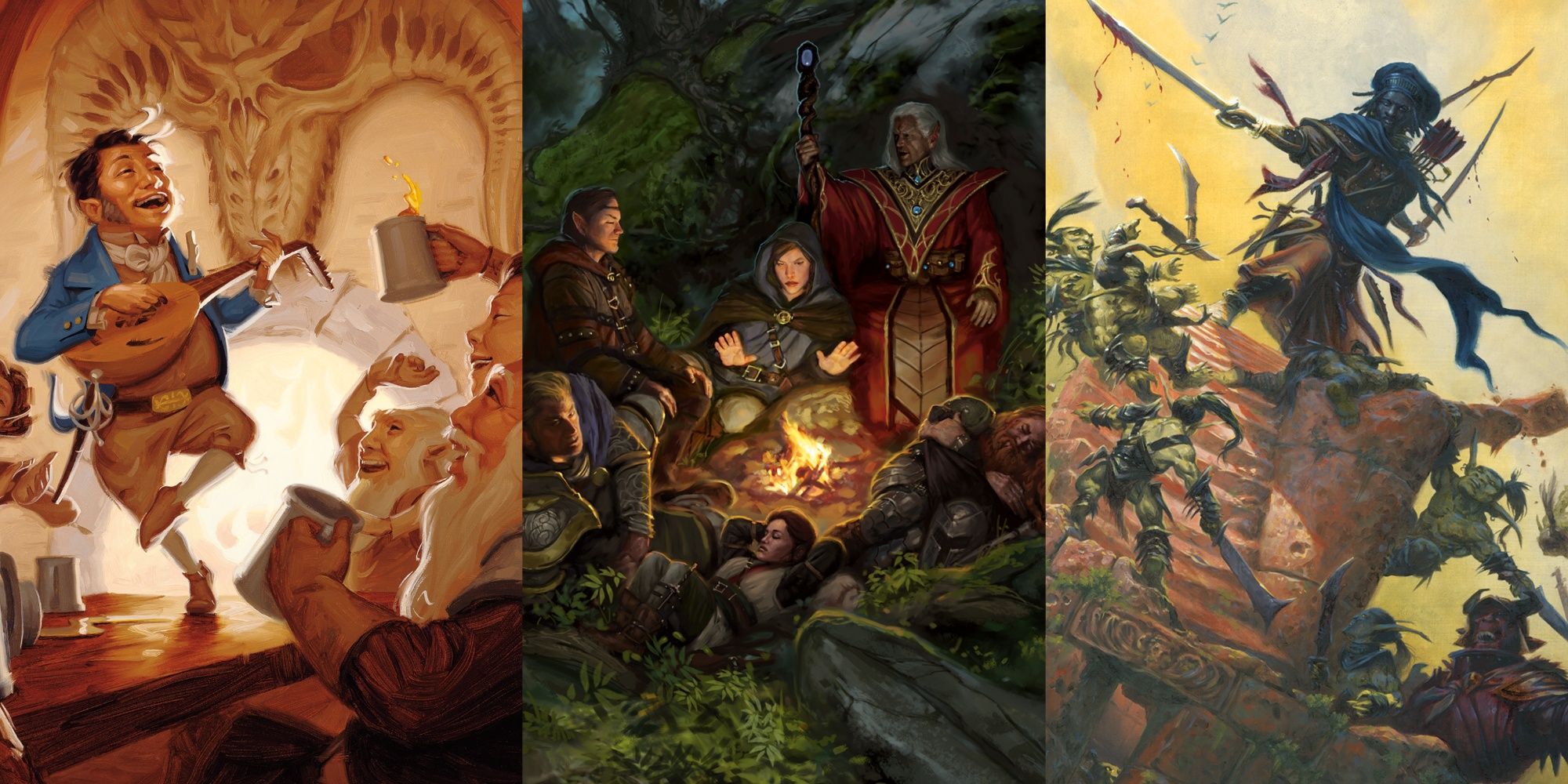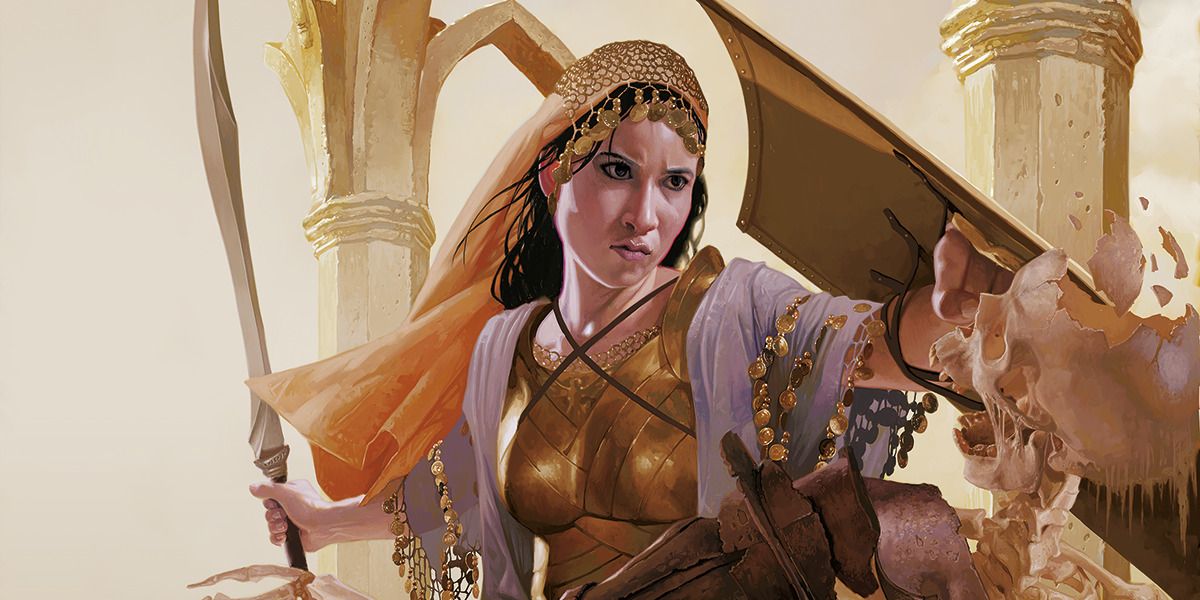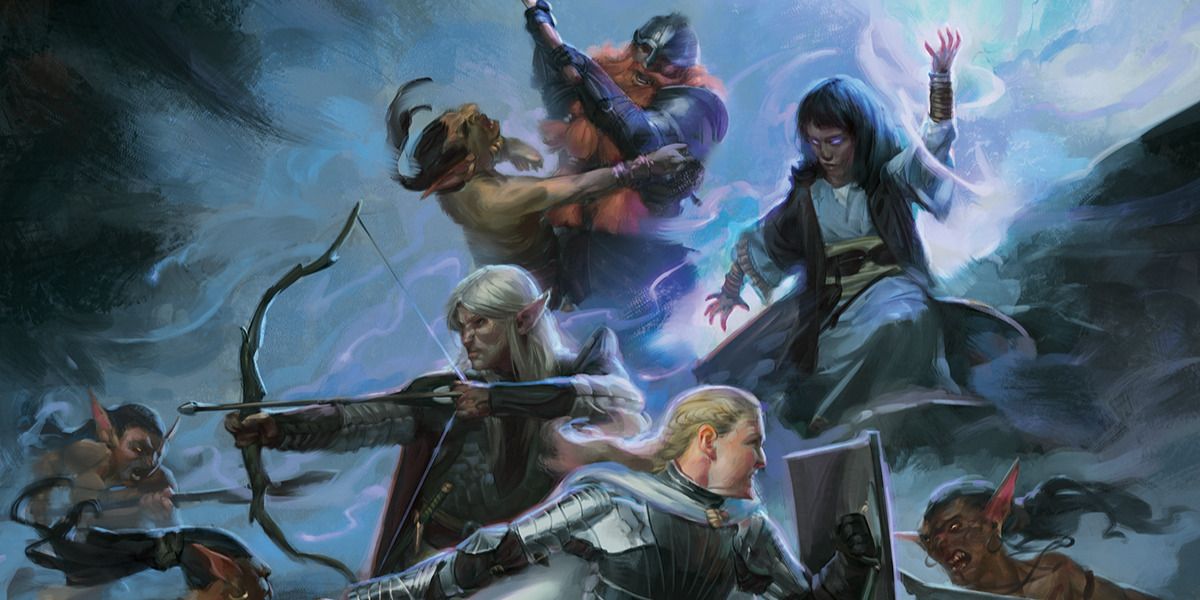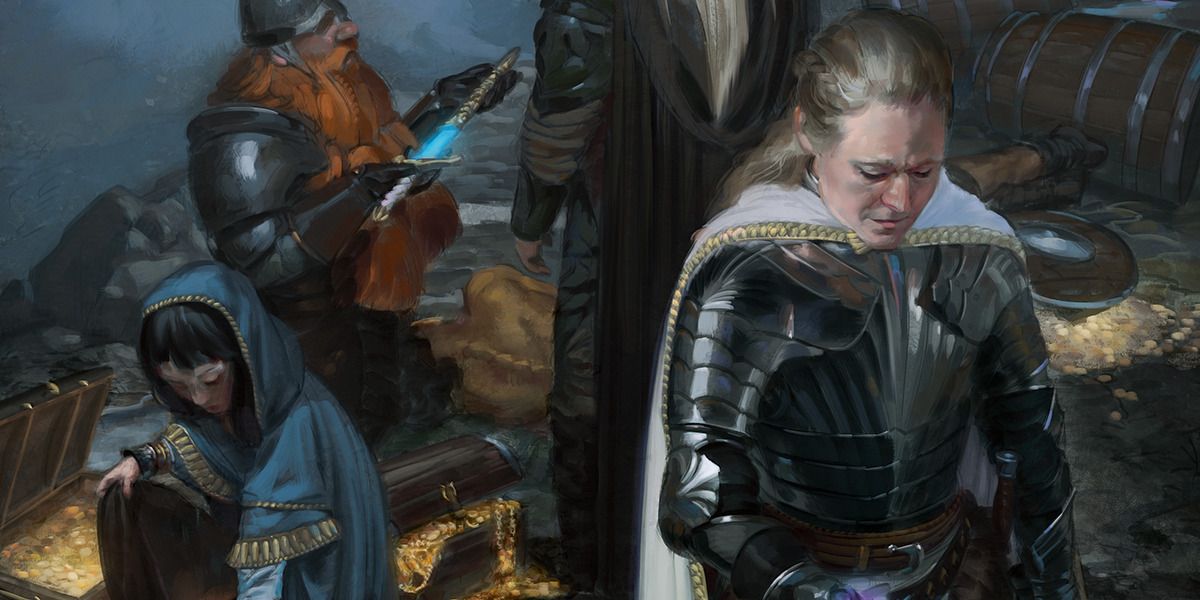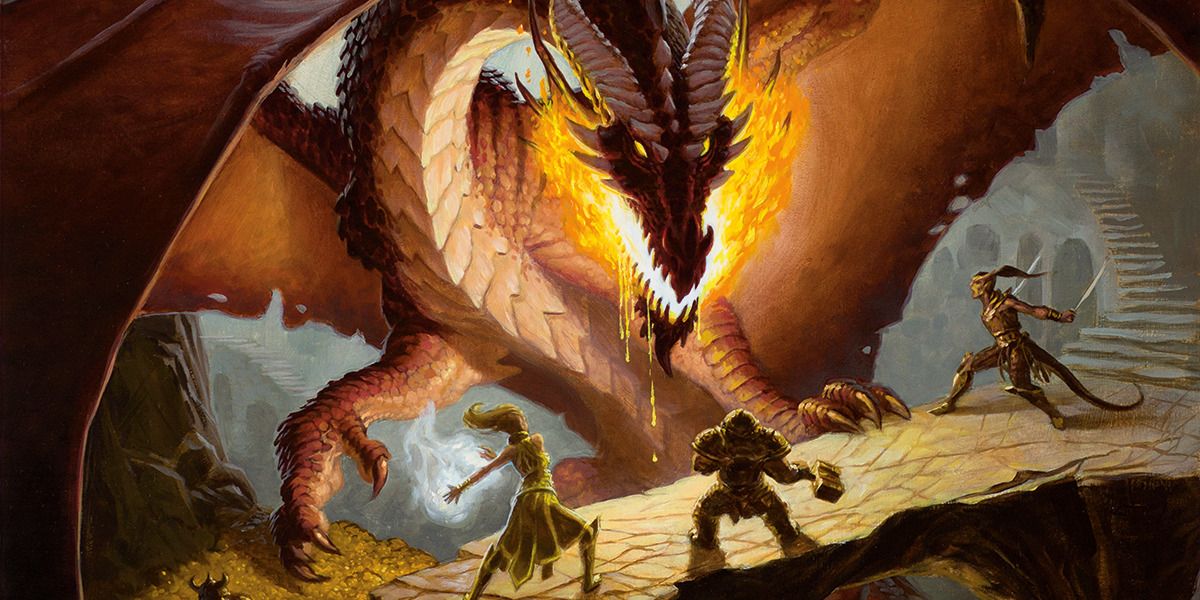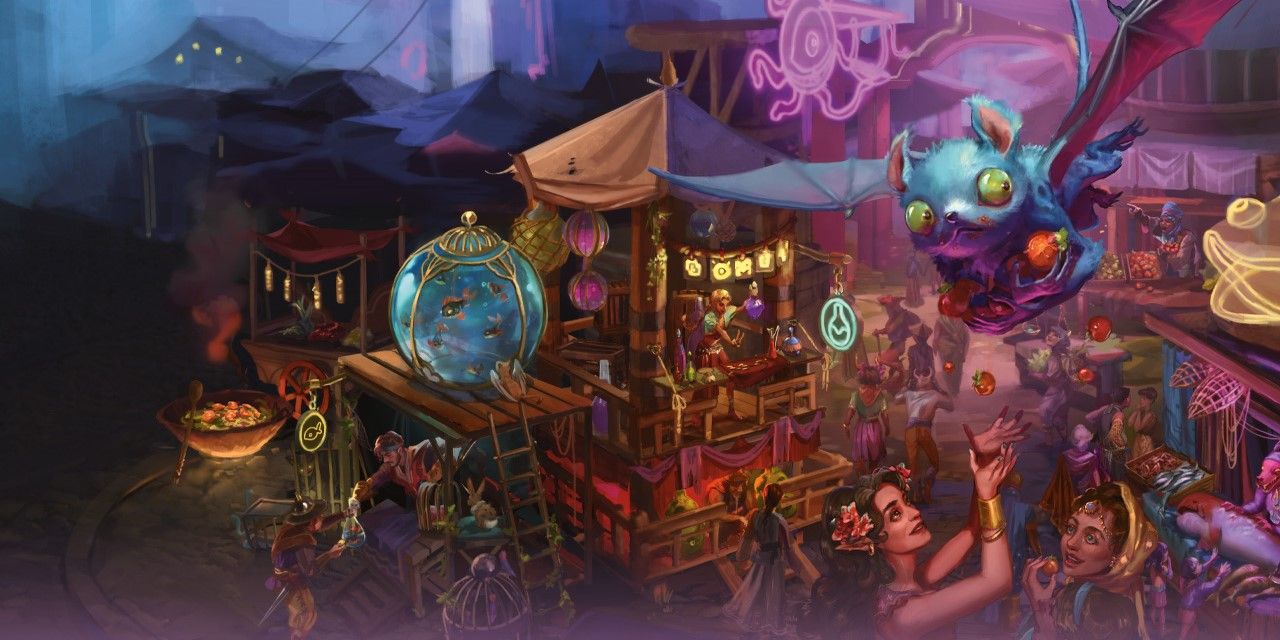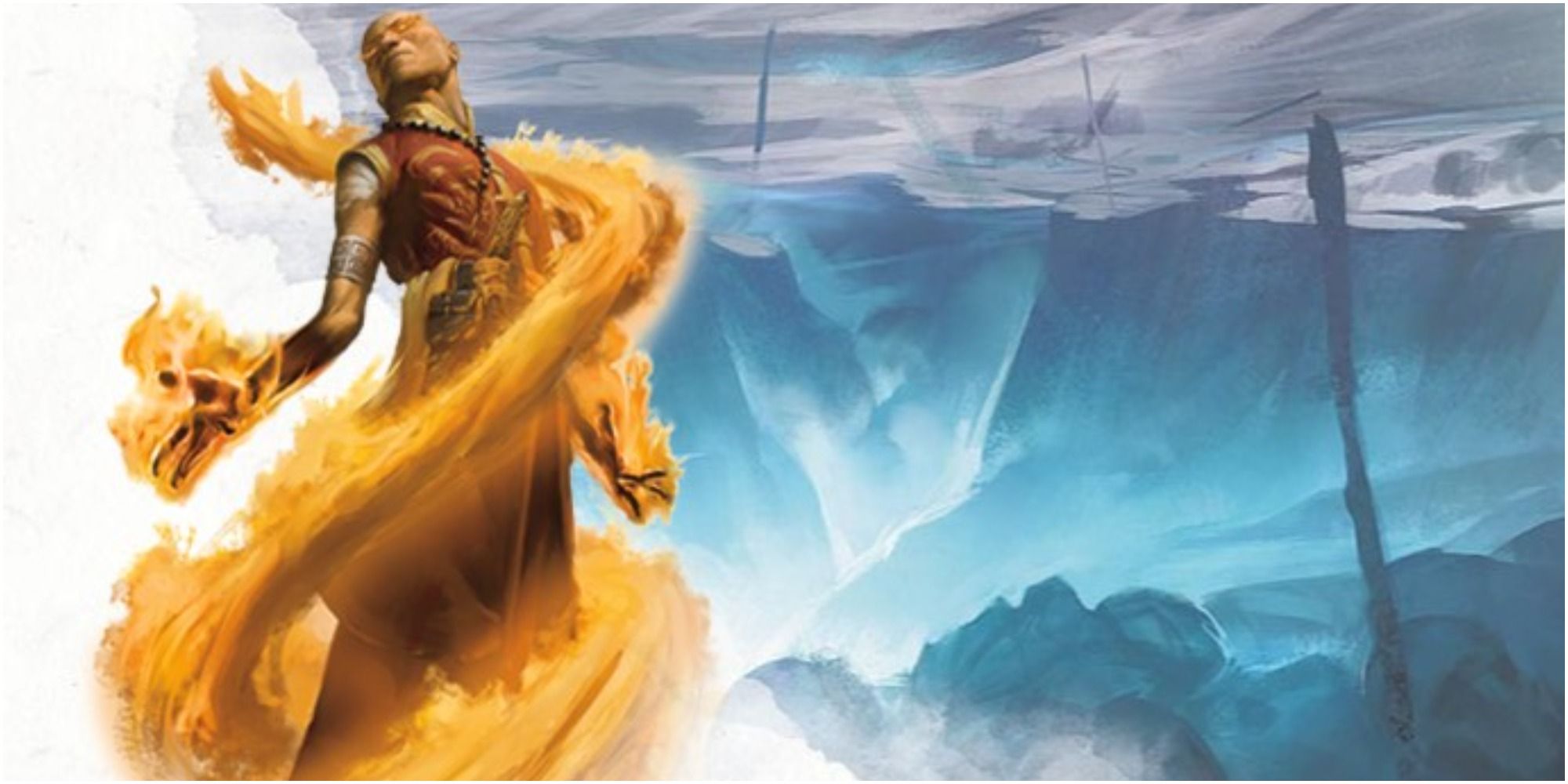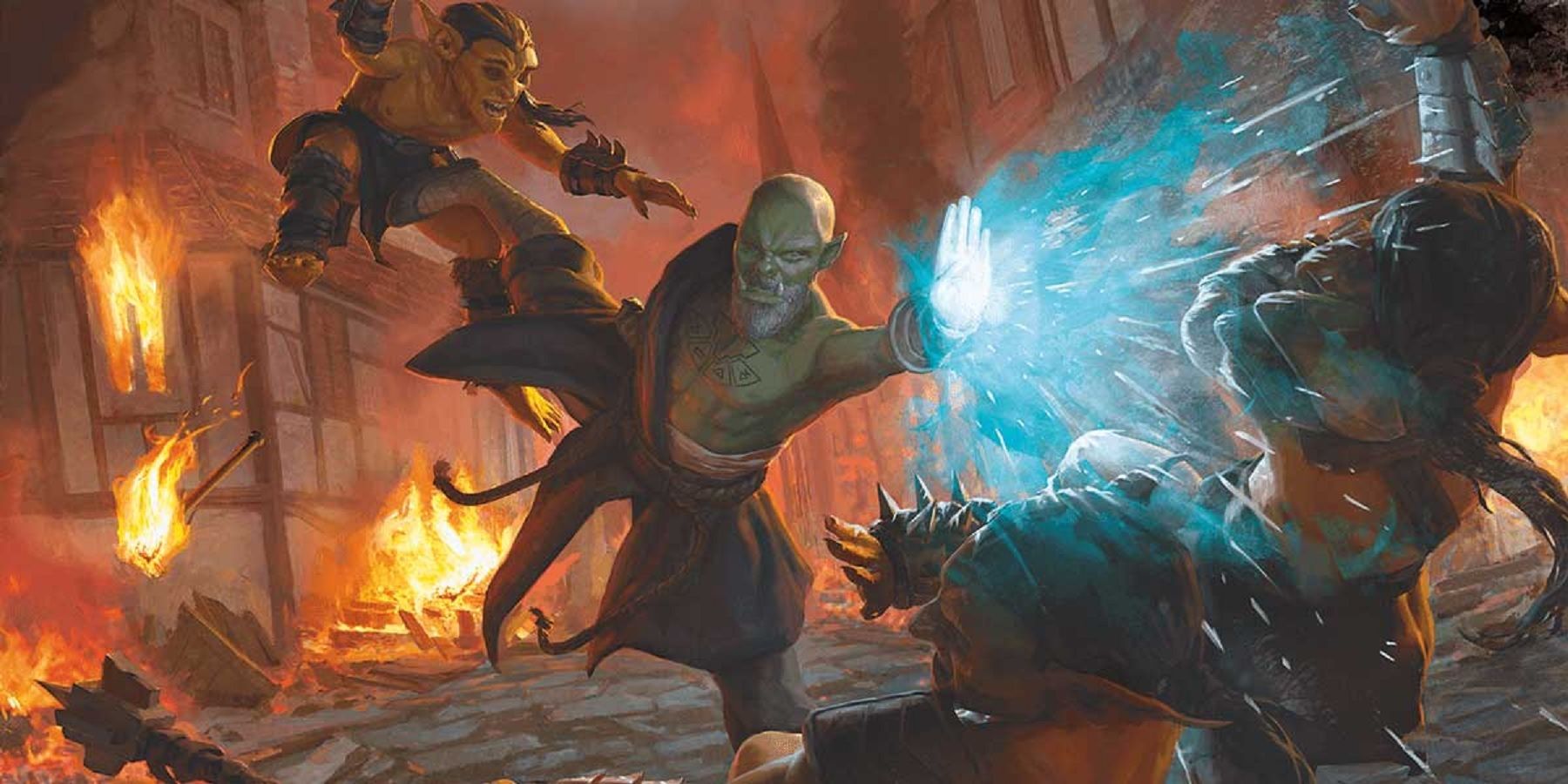Highlights
- Reworking bonus actions can allow for more strategic gameplay choices in D&D, enhancing the overall experience.
- True Strike, a seemingly useless spell, could be made more valuable by changing its casting time to a bonus action.
- Monks, often considered the weakest class, will receive updates in One D&D that aim to bring them up to par with other classes.
Dungeons and Dragons Fifth Edition features a compendium of rules that can be a little bit of a headache to try to learn in one go, and some features are downright weird. While Fifth Edition is a fantastic system to run a table-top roleplaying game, there's room for improvement. One D&D, which is set to be revealed in full sometime during 2024, will address many of the gripes players have with the fifth edition, but some features have yet to be addressed in any of the playtests.
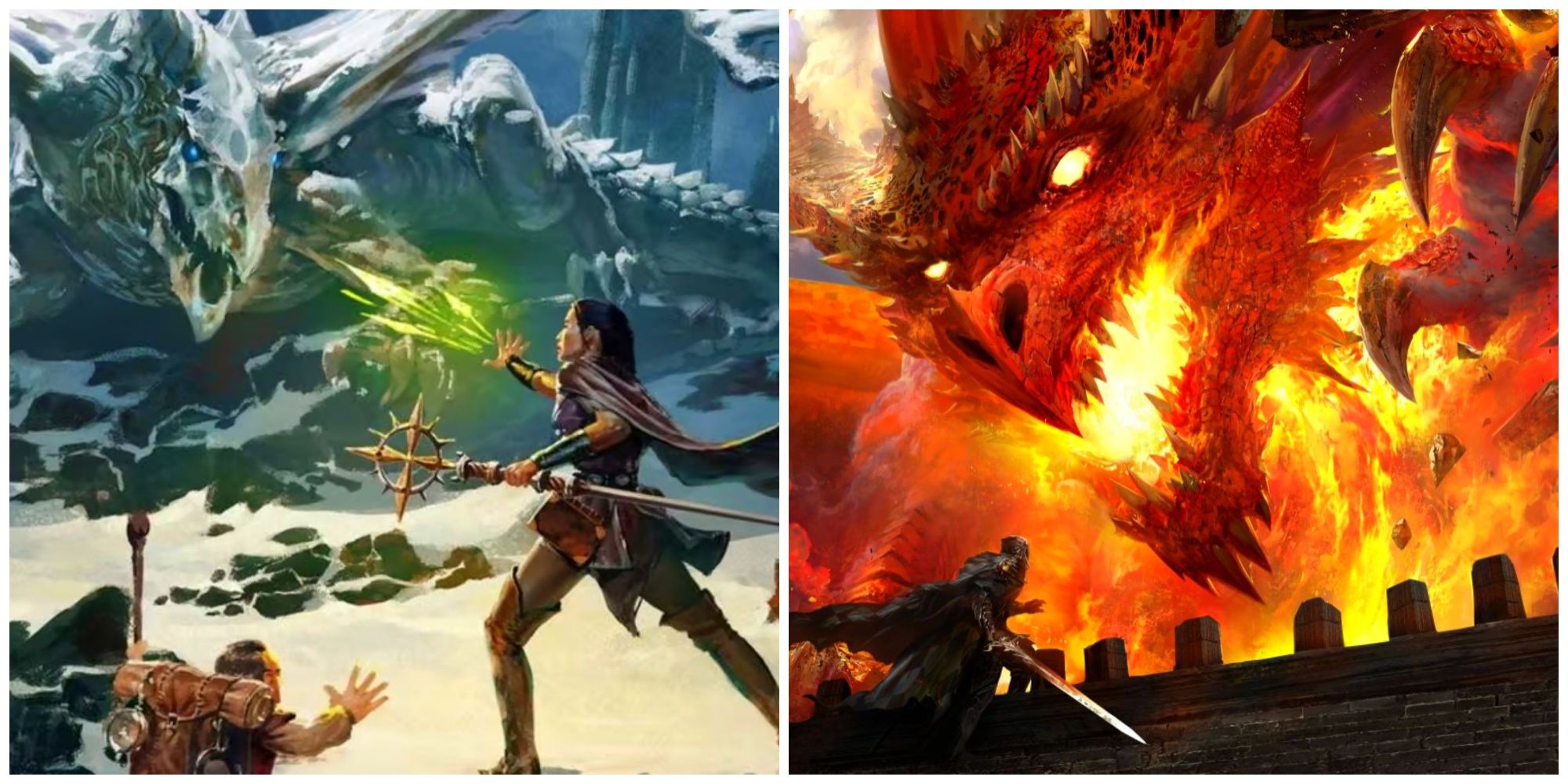
Dungeons And Dragons: 8 Ways DnD Used To Be A Lot Harder
Dungeons and Dragons used to be an extremely difficult tabletop RPG, with many players facing challenges before they even named their characters.
While it seems like Wizards of The Coast are hard at work on updating Dungeons and Dragons, there are a few things that would be fantastic tweaks for the upcoming rule update. Here are the top features that should be tweaked for One D&D.
1 Bonus Actions
Rework Action Economy To Allow More Swapping Between Actions
According to the rules as written (RAW), players can only take 1 action on their turn and 1 bonus action by default. While this may seem simple and reasonable enough at first, eventually the question will come up at any D&D table, which is "Can I use my action to do a bonus action thing?" Depending on how strict a DM is, the answer, per Fifth Edition rules, is no.
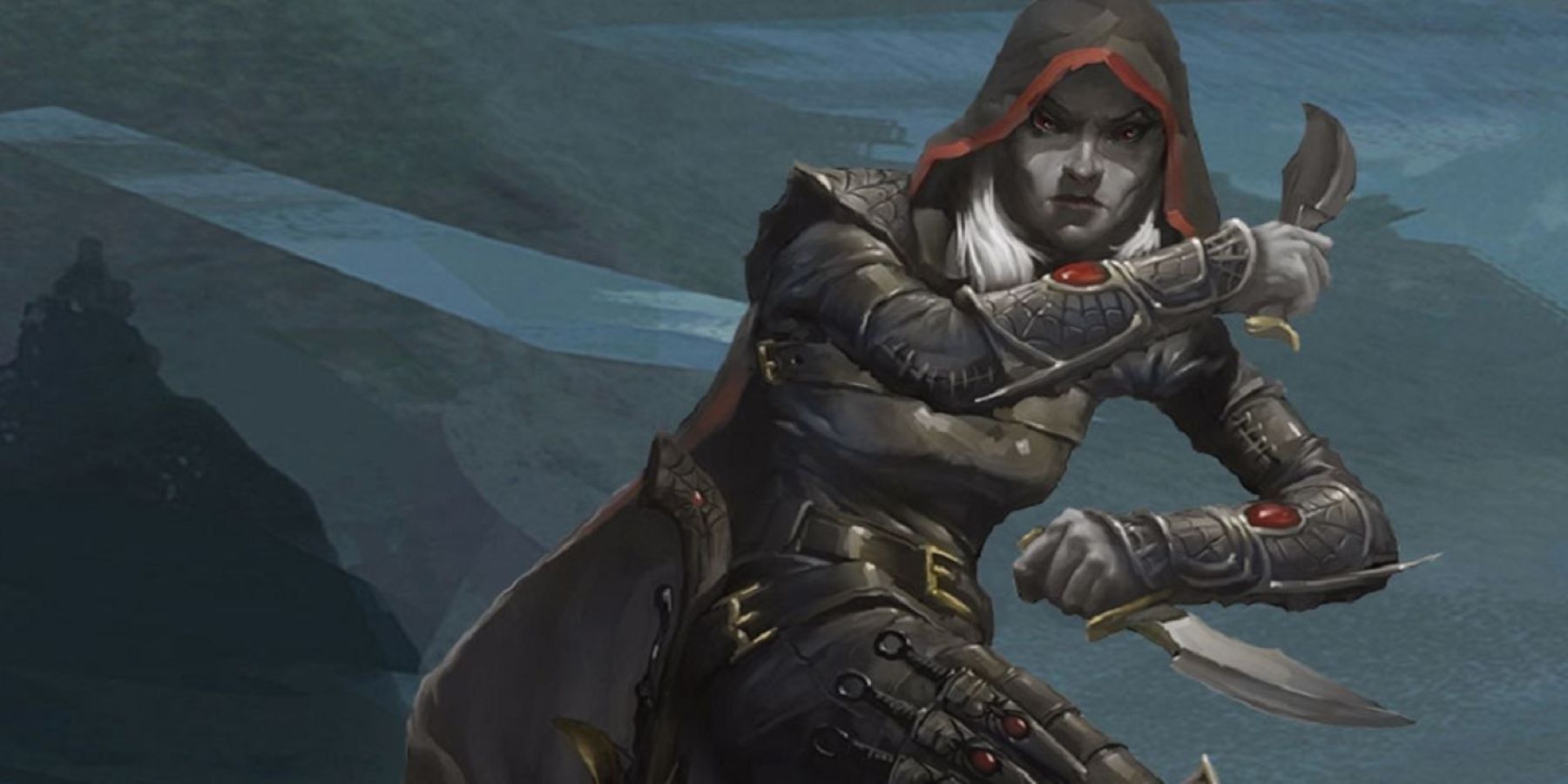
Should Dungeons and Dragons 6E Add Lots of New Player Classes?
Dungeons and Dragons could stand to fill certain mechanical niches with new player classes, but a class-heavy 6th edition may not be necessary.
Even though it makes logical sense that they cannot be used interchangeably, it does seem a little unintuitive that players aren't allowed to essentially forfeit their main action in favor of doing something that requires one bonus action. Now, this doesn't mean players should be able to use a bonus action for something that typically requires a reaction, but it seems reasonable enough to allow a player to spend their action to do something that may typically cost a bonus action. This could be something like making an offhand attack before casting misty step, which isn't game-breaking by any means.
2 True Strike
Turn The Worst Spell Into Something Useful
True Strike is arguably one of the worst spells in Dungeons and Dragons. It's rare to see this cantrip get used in the game, and even rarer to see it be useful. With a casting time of one action, players who cast this spell will gain Advantage on their next attack against whichever creature it was cast on. What's more, it's a concentration spell, which just adds insult to injury.
On the surface, True Strike could be great! It's no wonder that so many new players get suckered into taking it, only to quickly learn that it's a pretty poor spell, and horrible for action economy. This cantrip could be taken from one of the worst spells in the game to pretty decent if its casting time is simply changed to one bonus action. This might get pretty rough if a multiclassed Fighter or Rogue were to abuse it, but there's room for improvement with this cantrip.
3 Gold
Give Players A Reason To Spend Their Hard-Earned Gold
Gold and money in Dungeons and Dragons is a little weird. At lower levels, players will often feel they can't afford anything. At higher levels, it's almost unimportant as any seasoned adventuring party will have plenty to spare. It can feel a little wasted to be lugging around thousands of gold during adventures, so why not give players something to do with it?
Some rules currently exist within D&D to handle players purchasing and running a business, but it's largely quite hands-off, and for most, generally exists as a way to increase endless streams of income. Adding something new to give players something meaningful to spend their cash on would be a welcome change. Now, this shouldn't be something like being able to buy levels, or anything else, but something to incentivize players to keep on earning can not only add extra depth to games but provide some interesting roleplay opportunities.
4 Darkvision
A Spanner In The Works For Immersion And Horror
Darkvision has almost become something of a joke in Dungeons and Dragons. It's exceedingly rare for a party to not have at least 1, but typically 2 or 3 members that have darkvision. Only three races in the Player's Handbook don't have Darkvision! This generally means managing light levels in dungeons or deep caves is somewhat redundant, and at times it can take away from the roleplay experience.
Gone are the days when a Dungeon Master could create a genuine sense of fear or dread for what might be lurking in the dark caves ahead, as players slowly and carefully traverse deeper below the crust of the planet guided only by a torch that is rapidly dwindling. Some reworks to darkvision to allow Dungeon Masters to elicit genuine caution and apprehension from their players would only serve to enrich the D&D experience.
5 Potions
A Common Houserule Should Be Made Official
Some players might be surprised to learn that potions, per RAW, take one action to consume. Perhaps one of the most popular house rules in D&D is drinking a potion simply costs 1 bonus action, with most tables and Dungeon Masters embracing this house rule in full. It seems a little odd that despite this common house rule, which is not particularly overpowered or game-breaking, shows no signs of being reworked in One D&D.
There's no doubt that this change would be a welcome one by the community, but it could perhaps be fleshed out a little to add a little more depth, both for roleplaying and for combat. One popular twist on this house rule is that consuming a potion costs one bonus action. However, if they attempt to feed another player a potion, it will cost one action. This seems like a healthy compromise that would be appreciated by the designated healer of the party, who will instead be able to utilize their spell slots in new and creative ways.
6 Sorcerers
No Longer "Wizards But Worse"
Sorcerers are pretty commonly seen as "wizards, but worse" in large part due to their inflexibility with spells, and a pretty measly number of total spells known. Their metamagic options, while extremely fun and dynamic, are often very situational, and are quite limited.
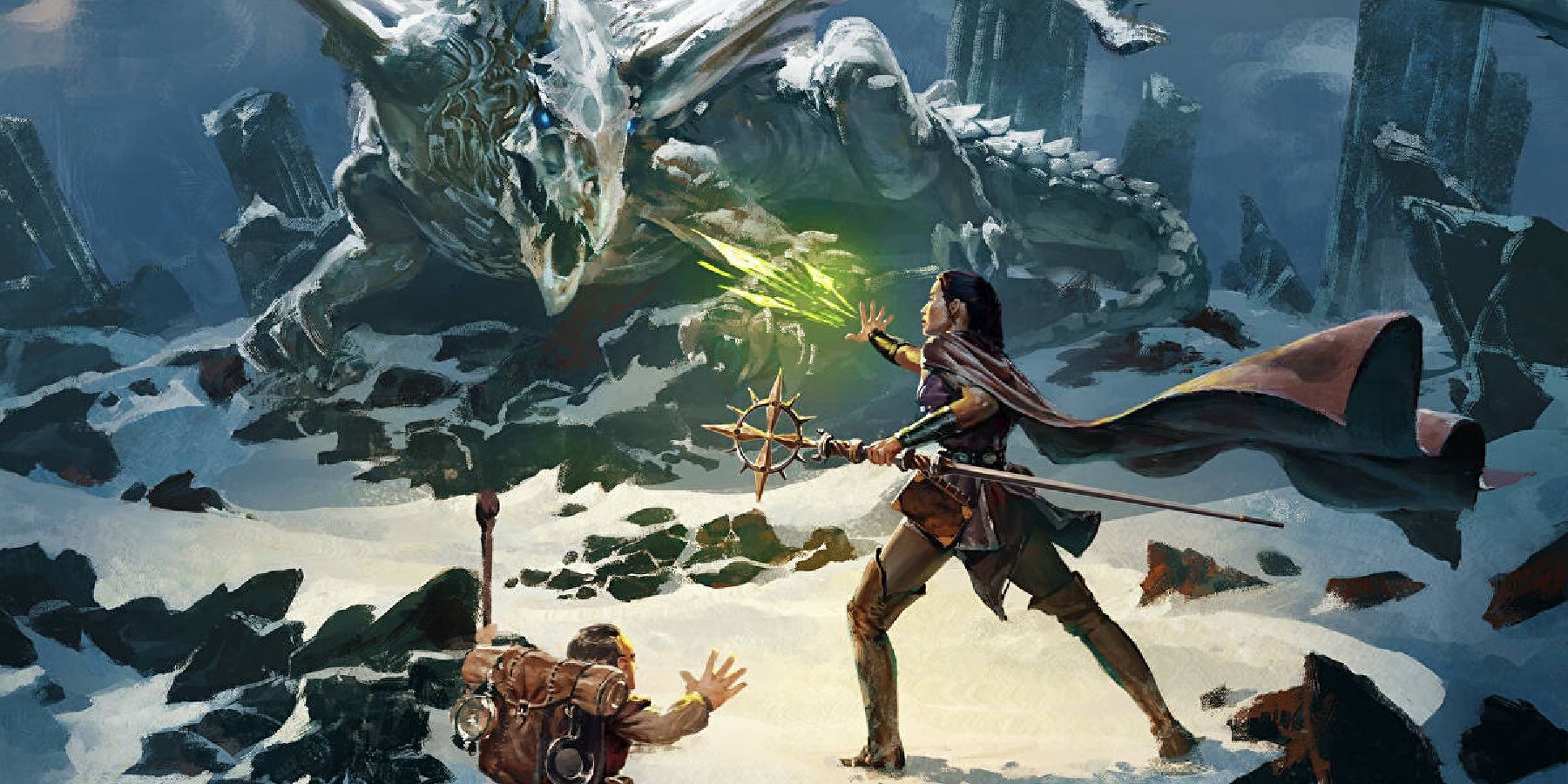
How Dungeons and Dragons 6E Could Improve 5E's Sorcerer Class
The Sorcerer class is already among the most powerful choices for a character in Dungeons & Dragons, but 6E could improve on the spellcaster.
Metamagic can certainly be improved. For example, from level 7, players will be able to use more than one metamagic option on one spell. By level 20, they will be able to use a metamagic option without expending sorcery points, which improves the innate arcana of Sorcerers. However, there doesn't seem to be a whole lot that continues to set Sorcerers apart from Wizards, so hopefully this class will get further tweaks ahead of the launch of One D&D.
7 Monks
The Worst Class Gets A Buff
Monks are, quite simply, the worst class in Dungeons and Dragons Fifth Edition. It's a shame, as Monks provide some of the most interesting character archetypes in the game, and is a class that is rich with roleplaying opportunities. For a class that cannot (typically) cast spells, their damage output as martial characters is laughably weak, and they fail to stand up to punishment in ways that Barbarians or Fighters can.
Luckily, Monks, like Sorcerers, are set to get some overhaul in One D&D, but the changes build upon the already existing class in Fifth Edition. Monks are a perfect candidate for a ground-up rework that could see them excel in niche areas of the game. The current changes promised for One D&D are a good start, but a total rework is needed to bring this character up to par with other classes. Wizards of the Coast could take a leaf out of Larian Studios' book after Monk was reworked with a good degree of success in Baldur's Gate 3.
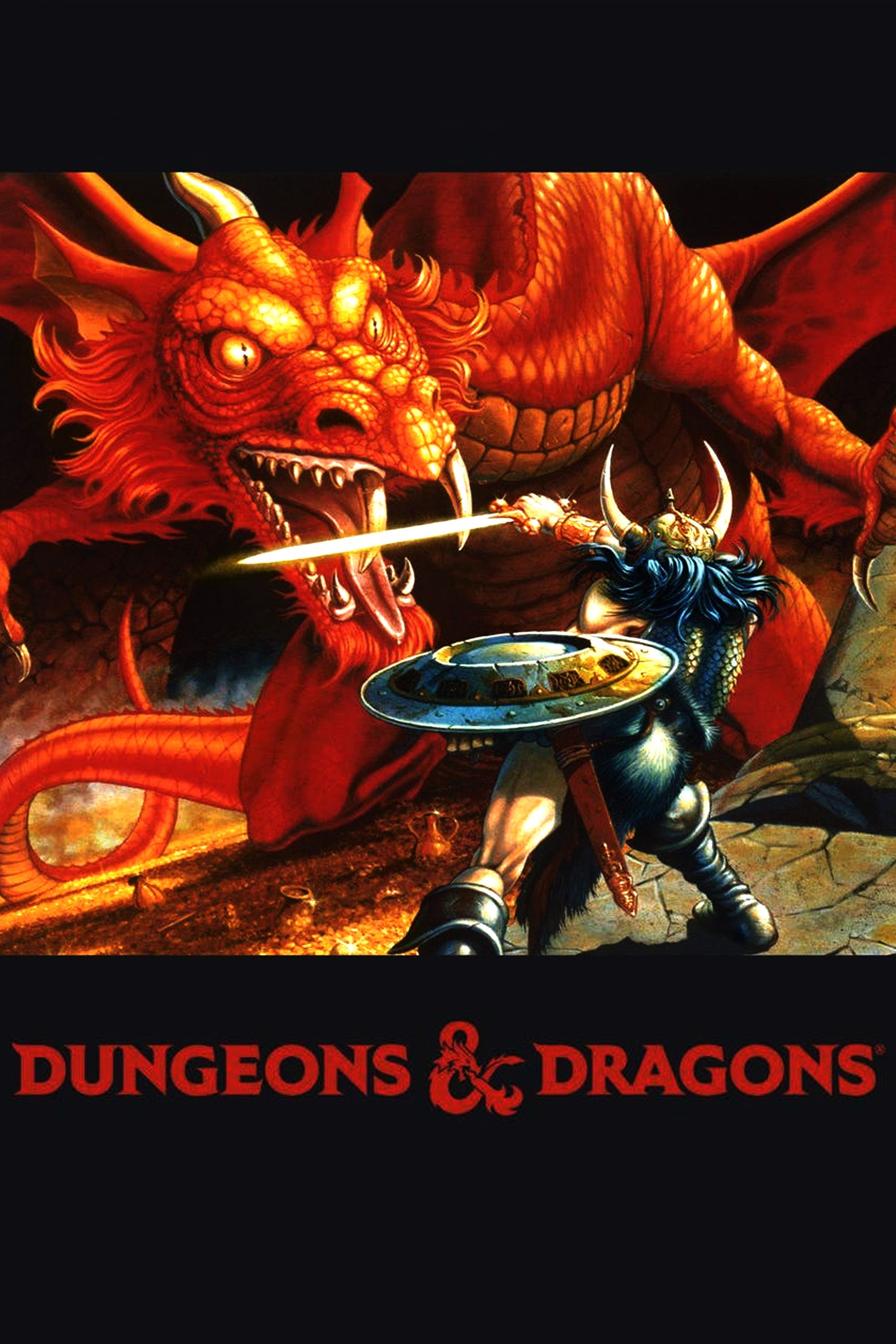
Dungeons and Dragons
- Original Release Date
- 1974-00-00
- Publisher
- Wizards of the Coast
- Designer
- E. Gary Gygax , Dave Arneson

